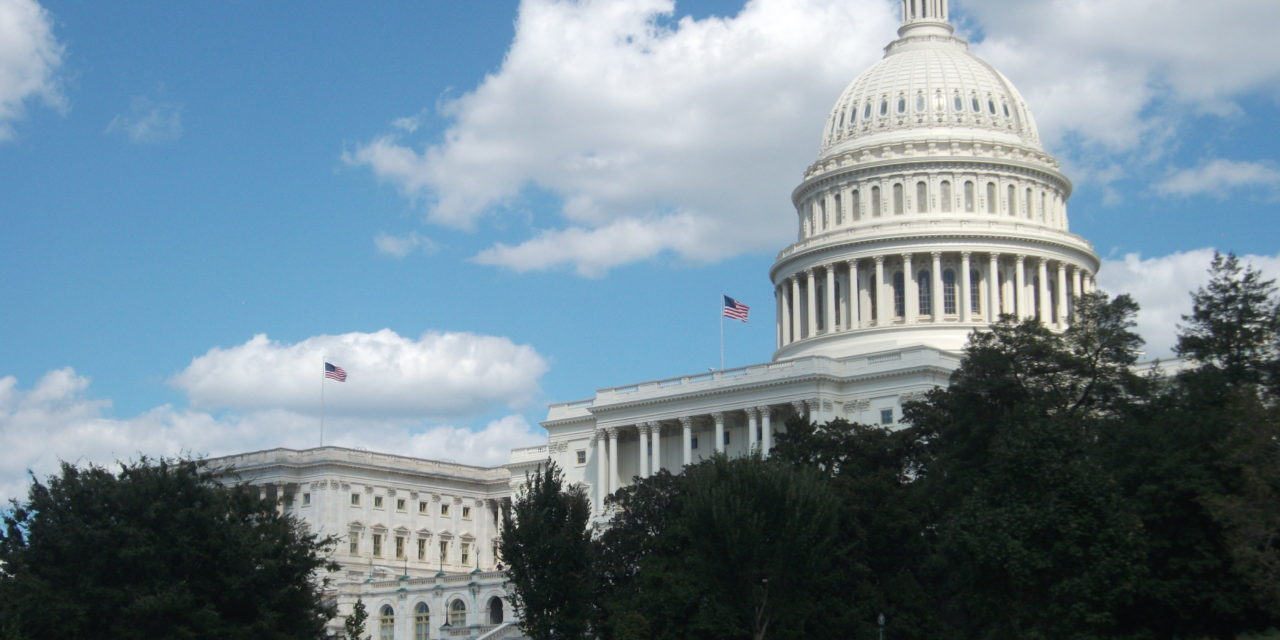Tomorrow, Feb. 9 2021, the U.S. Senate will convene to hold the second impeachment trial of now-former President Donald Trump. Former President Trump was impeached for the second time in the House of Representatives on January, 13 2021; while he was still serving as the 45th President of the United States. The charges for this second impeachment are:
In his conduct while President of the United States—and in violation of his constitutional oath to faithfully execute the office of President of the United States and, to the best of his ability, preserve, protect, and defend the Constitution of the United States, and in violation of his constitutional duty to take care that the laws be faithfully executed—Donald John Trump engaged in high Crimes and Misdemeanors by inciting violence against the Government of the United States, in that:
On January 6, 2021, pursuant to the 12th Amendment to the Constitution of the United States, the Vice President of the United States, the House of Representatives, and the Senate met at the United States Capitol for a Joint Session of Congress to count the votes of the Electoral College. In the months preceding the Joint Session, President Trump repeatedly issued false statements asserting that the Presidential election results were the product of widespread fraud and should not be accepted by the American people or certified by State or Federal officials. Shortly before the Joint Session commenced, President Trump, addressed a crowd at the Ellipse in Washington, D.C. There, he reiterated false claims that “we won this election, and we won it by a landslide”. He also willfully made statements that, in context, encouraged—and foreseeably resulted in—lawless action at the Capitol, such as: “if you don’t fight like hell you’re not going to have a country anymore”. Thus incited by President Trump, members of the crowd he had addressed, in an attempt to, among other objectives, interfere with the Joint Session’s solemn constitutional duty to certify the results of the 2020 Presidential election, unlawfully breached and vandalized the Capitol, injured and killed law enforcement personnel, menaced Members of Congress, the Vice President, and Congressional personnel, and engaged in other violent, deadly, destructive, and seditious acts.
President Trump’s conduct on January 6, 2021, followed his prior efforts to subvert and obstruct the certification of the results of the 2020 Presidential election. Those prior efforts included a phone call on January 2, 2021, during which President Trump urged the Secretary of State of Georgia, Brad Raffensperger, to “find” enough votes to overturn the Georgia Presidential election results and threatened Secretary Raffensperger if he failed to do so.
Wherefore, Donald John Trump, by such conduct, has demonstrated that he will remain a threat to national security, democracy, and the Constitution if allowed to remain in office, and has acted in a manner grossly incompatible with self-governance and the rule of law. Donald John Trump thus warrants impeachment and trial, removal from office, and disqualification to hold and enjoy any office of honor, trust, or profit under the United States.
The charges against former President Trump, for which he’ll be tried in the Senate beginning tomorrow, are: inciting violence against the United States.
 The reason that the Senate trial is not being undertaken until tomorrow, three weeks after former President Trump’s term ended, is because then-Senate Majority Leader Mitch McConnell did not want to have to deal with the trial.
The reason that the Senate trial is not being undertaken until tomorrow, three weeks after former President Trump’s term ended, is because then-Senate Majority Leader Mitch McConnell did not want to have to deal with the trial.
Instead, he sent the Senate home on a previously scheduled adjournment so that senators could both work in their districts and take two weeks off. This pushed the date for former President Trump’s Senate trial back until after he left office. The result is that it starts tomorrow.
The charge of incitement is important because a number of the alleged insurrectionists who violently stormed the Capitol on Jan. 6 2021 have stated to Federal authorities – both law enforcement and to the Federal courts at their arraignments – that they stormed the Capitol because former President Trump wanted them, called them, and/or invited them to do so!
As a result, the stakes for this impeachment trial are much, much higher than previous ones; more so than even former President Trump’s first impeachment and trial.
There are a couple of unique features of this second impeachment trial for former President Trump. The first is that because he is now out of office, Chief Justice John Roberts has decided that he is not required to preside over the impeachment trial as he would have to if former President Trump were still in office. As a result, the Senate President Pro Tempore, who is the most senior senator in the majority caucus, Senator Pat Leahy (D-VT), will preside.
The second unique feature, the most obvious one, is that former President Trump is no longer serving as president. On 26 January 2021 45 of the 50 Republican senators voted in support of a resolution declaring it unconstitutional to try former President Trump on the charges he was impeached for while still in office because he is no longer in office. That resolution failed 55 to 45 with five Republican senators voting with all 48 Democrats and the two Independent senators that caucus with the Democrats.
The third unique feature is that the jurors in this impeachment trial, all 100 senators, were also the targets and the victims of the attack on the Capitol. Moreover, several of the Republican senators, most notably Senators Hawley (R-MO) and Cruz (R-TX), stand accused of helping to incite the attack.
While having jurors who are also the victims (as well as several accused of being accessories to the violent insurrection themselves), is sure to create some interesting dynamics, the major issue – of whether it is constitutional to try a former president once he is out of office – has been put to rest by the U.S. Senate itself. However, it was never really a legitimate constitutional or legal concern.
Over one hundred and fifty legal scholars, including the co-founder of the conservative Federalist Society and numerous other Federalist Society affiliated attorneys, issued a letter stating that:
Now that President Trump has left office, may the Senate take up an article of impeachment, and try, convict, and disqualify President Trump from holding future office? We, the undersigned constitutional law scholars, conclude it can.
If impeachment were only a device for removing officials from office, then perhaps only current officers could be impeached. But disqualification is a consequence that might need to be imposed on prior officeholders as well as current ones. In keeping with that rationale, nothing in the text of the Constitution bars Congress from impeaching, convicting, and disqualifying former officials from holding future office. Indeed, the ability to try, convict, and disqualify former officials is an important deterrent against future misconduct. If an official could only be disqualified while he or she still held office, then an official who betrayed the public trust and was impeached could avoid accountability simply by resigning one minute before the Senate’s final conviction vote. The Framers did not design the Constitution’s checks and balances to be so easily undermined.
History supports a reading of the Constitution that allows Congress to impeach, try, convict, and disqualify former officers. In drafting the Constitution’s impeachment provisions, the Framers drew upon the models of impeachment in Great Britain and state constitutions. In 1787, English impeachment was understood to allow for the impeachment, trial, and conviction of former officials; likewise, the law of several states made clear that waiting to impeach officials until they were out of office was preferred or even required, and no state barred the impeachment of former officials.
Precedent also buttresses our conclusion that Congress may try, convict, and disqualify former officers: Congress has done it in the past. In 1876, Secretary of War William Belknap tried to avoid impeachment and its consequences by resigning minutes before the House voted on his impeachment. The House impeached him anyway, and the Senate concluded that it had the power to try, convict, and disqualify former officers.
In sum, the Constitution’s text and structure, history, and precedent make clear that Congress’s impeachment power permits it to impeach, try, convict, and disqualify former officers, including former presidents. The Senate may take up the House’s article of impeachment against former President Donald J. Trump, conduct a trial, convict him, and disqualify him from holding a future office of the United States.
That forty five Republicans voted on Jan. 26 that trying former President Trump would be unconstitutional because he is now out of office, seems to strongly hint that there are not sixty-seven votes necessary to convict him and bar him from ever holding public office again. We won’t really know until the trial is concluded and the two votes – one to convict and one to bar former President Trump from every holding public office again – are taken.
Given that the outcome seems to be predetermined, that only five Republican senators will be voting with the forty-eight Democratic and two Independent senators who caucus with the Democrats to convict and bar former President Trump, why even bother?
The reason goes back to the charge for which former President Trump was impeached: inciting violence against the United States. Specifically inciting a violent insurrection against the U.S. Congress, where the insurrectionists are on video screaming for former Vice President Pence, Speaker Pelosi, and other members of Congress so they can assassinate them, in order to overturn the results of the Electoral College vote and install former President Trump for a second term. The evidence of this – from video and audio streamed by the insurrectionists or recorded by journalists on-site, to law enforcement and other testimony provided by live witnesses – is something that must be shown during the trial.
A full, proper, and complete accounting needs to be made of what happened on Jan. 6 2021; why it happened, and what former President Trump’s role was in motivating it to happen.
Featured image: the United States Capitol from the southwest lawns. Photo by Jan Wondra.








Recent Comments